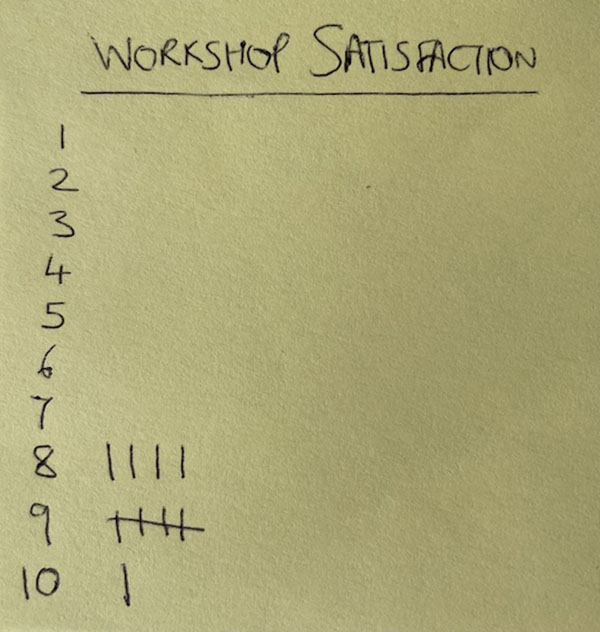No organisation can be more focused and strategic than its #1 team.
Let’s face it:
- If your leadership team isn’t making time to align around what’s truly important, how can the broader organisation possibly align?
- If your top leaders are stuck in the weeds, with not enough time to think, what chance does the business have to create breakthrough results?
More...
I was invited recently by the senior leadership team of a national telecoms operator to introduce them to the key ideas from my new book, Making Time For Strategy.
So I spent a morning with their ten top leaders in this beautiful chateau:

(Yes, it’s a hard life, I know…)
What keeps leadership teams stuck in operations
What rapidly emerged was that, like so many leadership teams, it was incredibly hard for them to step out of the operational pressures and get strategic.
Here are some of the reasons they cited — do any sound familiar?
- A noisy corporate environment, with an expectation that emails, calls and messages need constant monitoring and immediate responses.
- Overly junior teams, needing extensive support, sucking too much of their manager’s attention and leaving little space for reflection.
- Demanding stakeholders (investors, customers, the CEO,…) with ever-shifting priorities.
- A “busyness culture” where thinking isn’t valued.
- Pressure for instant results, to the detriment of longer-term capability-building.
- Operational emergencies and fire-fighting that forces leaders to drop everything and roll up their sleeves.
As we worked together, exploring the importance of “strategic time” and their individual and collective challenges in making time for strategy, there were a few really important ‘ahas’ that emerged.
1 - We are shaping the very organisational culture we’re complaining about! If there’s a noisy corporate environment or a busyness culture, then surely the senior leadership team is uniquely placed to address that challenge?
2 - Change starts in our own head. I wondered if several items on the ‘issues list’ above were actually hard facts, or whether they reflected a particular interpretation of facts, a particular story they were telling themselves. As we discussed this, there was a consensus that often fear, perfectionism, people pleasing or an excessive need to be ‘doing things’ were the deeper causes at play.
3 - There are some practical steps we can take. Each person left having identified specific low-value activities to eliminate or reduce, and I walked them through five key tactics they can employ to free themselves up from those. And, collectively, there were some key ideas that emerged about adjusting the team’s own governance model so that they could spend less time on the operational detail and more time thinking about the most important levers in the business.
Do these resonate with you?
What’s the conversation that your team needs to have about this?
How about your leadership team?
The team loved the session (you can see their satisfaction scores below).

I think this was because the topic was so relevant for them, and because they left with both practical ideas and, more importantly, a shift in their perspective and a new way of thinking about making time for strategy.
My experience has been that this team isn’t an exception. Many, many leadership teams are full of leaders who are overwhelmed and overloaded, and not making enough time to think strategically about the business (together and individually).
That’s why we take teams through The Making Time For Strategy Leadership Team Series. There are four team workshops, delivered online or in person, generally over a 3-9 month timeframe. If desired, the first workshop can be run as a standalone ‘taster’.
WORKSHOP 1: “The Power Of Strategic Time”
- Understand the importance of making time for strategy
- Assess how strategically you are currently operating
- Internalise what will be different if your team learns to do this
- Learn the Making Time For Strategy methodology, and get some quick wins
WORKSHOP 2: “What are our most strategic opportunities — and what’s stopping us?”
- Align around the most strategic issues facing the business
- Get real about what’s driving our current behaviour, and how we can think differently to create new results
WORKSHOP 3: “How will we actually elevate our focus and make time for strategy?”
- Make the hard choices around how you use your time
- Agree what needs to change within the team to make this possible
- Commit to a practical implementation plan
WORKSHOP 4: “How do we create a culture of strategic focus?”
- Own the ways you make it hard for your wider organisation to think strategically or work on the breakthrough projects
- Identify some simple, effective ways by which this team can create a more aligned and focused culture within the organisation
If your leadership team would benefit from making more time for strategic activity, then do get in touch. We’d be happy to suggest a couple of ways forward.



